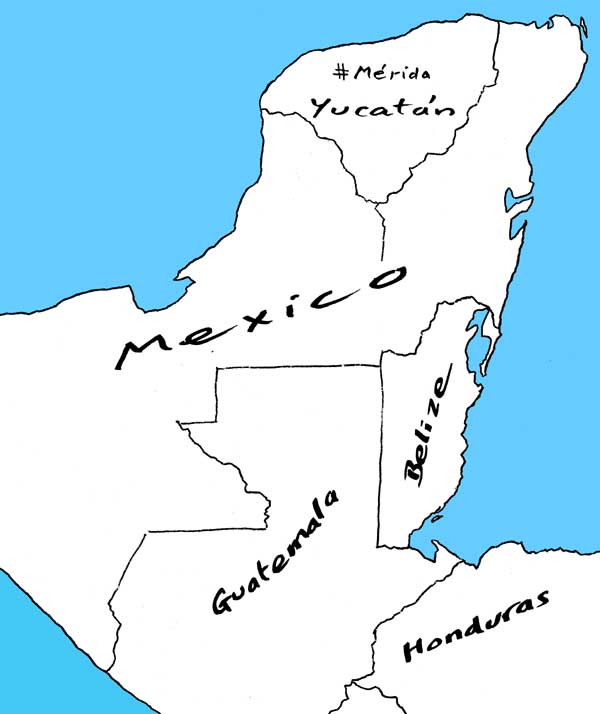Towns,
their structures and characters

|
Merida's street names The names of streets in Hispanic cities tend to be of the type
of “Avenida 9 de Julio” or “17 de Octubre” or
else of the type “Avenida Presidente Luis Saenz Piña”
or “Raúl Scalabrini-Ortiz (formerly Canning)” or (fictitious,
I'm afraid) “Calle Ingeniere-Marescal Marcantonio-Cesar Ordóñez
y Covarrubia-Jiménez.” It's hard to remember such a name, or
to know which part in it is actually spoken, or to find it on the
map, since it may be one of the north-south or one of the east-west
streets. You are told that a place is “at Bustamante and Charcas”
or “on Córdoba between Peru and Juncal y Oro.” And names
get changed at the accession or apotheosis of a politician: while
we were in Buenos Aires, signs on part of the Avenida de Mayo were
over-stuck with labels for the recently deceased president “Nestor
Kirchner.” Its street plan
is a grid, in which north-south streets have even numbers and east-west
streets odd numbers. So directions are given in the form “It's
on 69 between 64 and 66,” or, as written for you by someone
on a scrap of paper, “69 x 64 y 66.” This looks remarkably
like an expression in Cartesian rectangular coordinates, where “x”
means the left-right dimension, “y” the front-to-back
dimension, and “z” the up-and-down dimension. However,
in Meridan geometry “x” means “between” and
“y” means “and.” The system is rational, but
not easy, without the inhabitants' long practice, to keep clear
in the head: since the city is about sixty blocks across in both
directions, all streets of both directions in the middle have numbers
in the sixties. |
